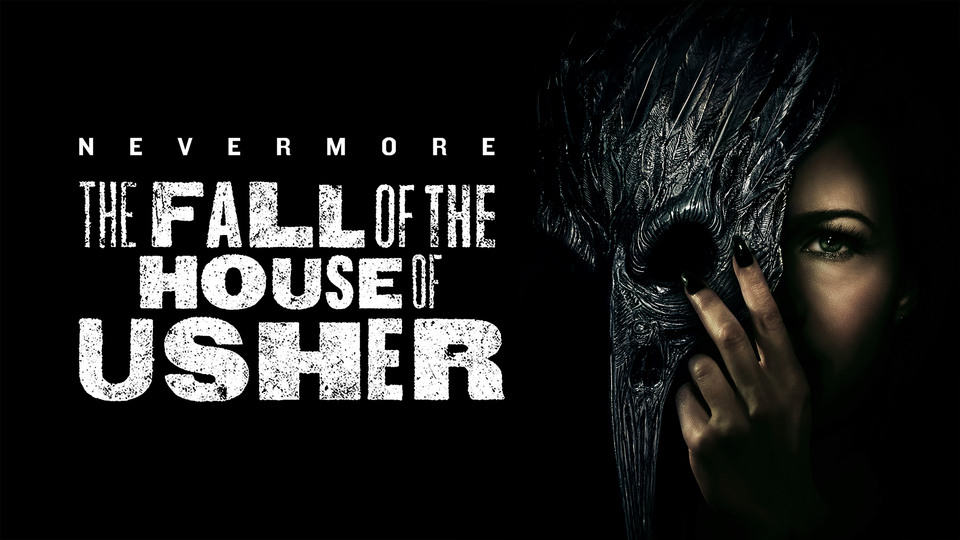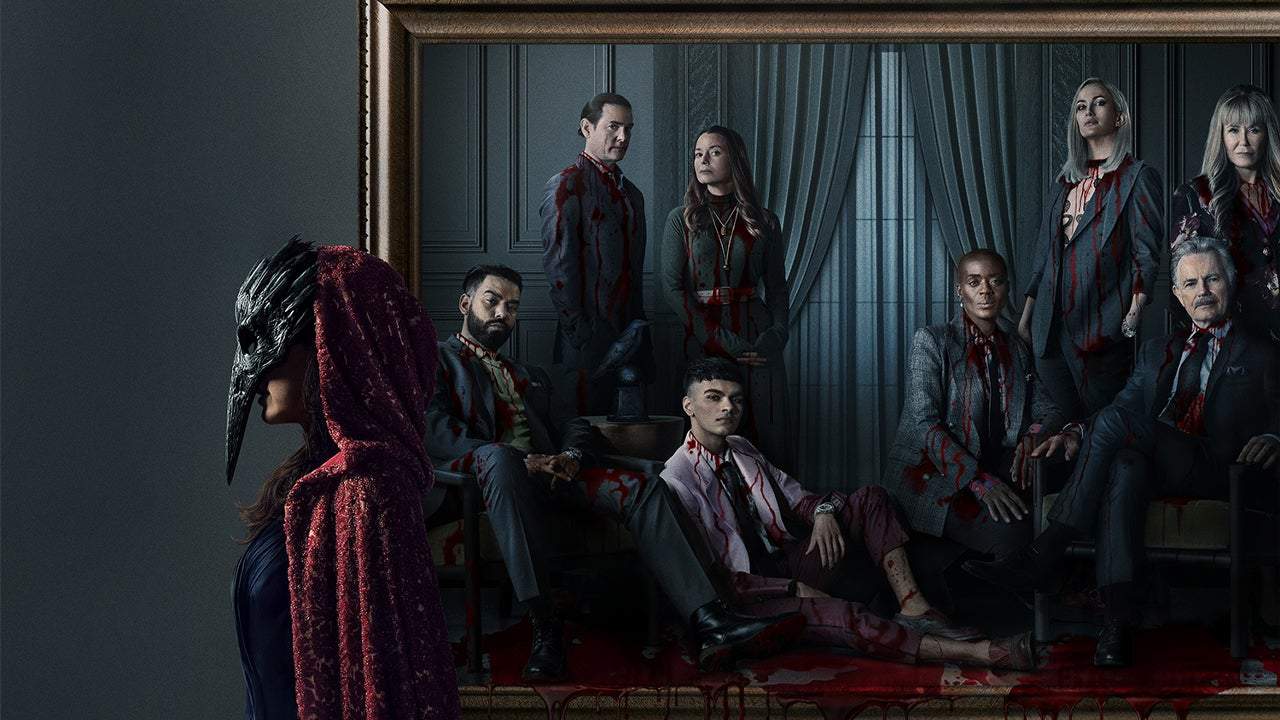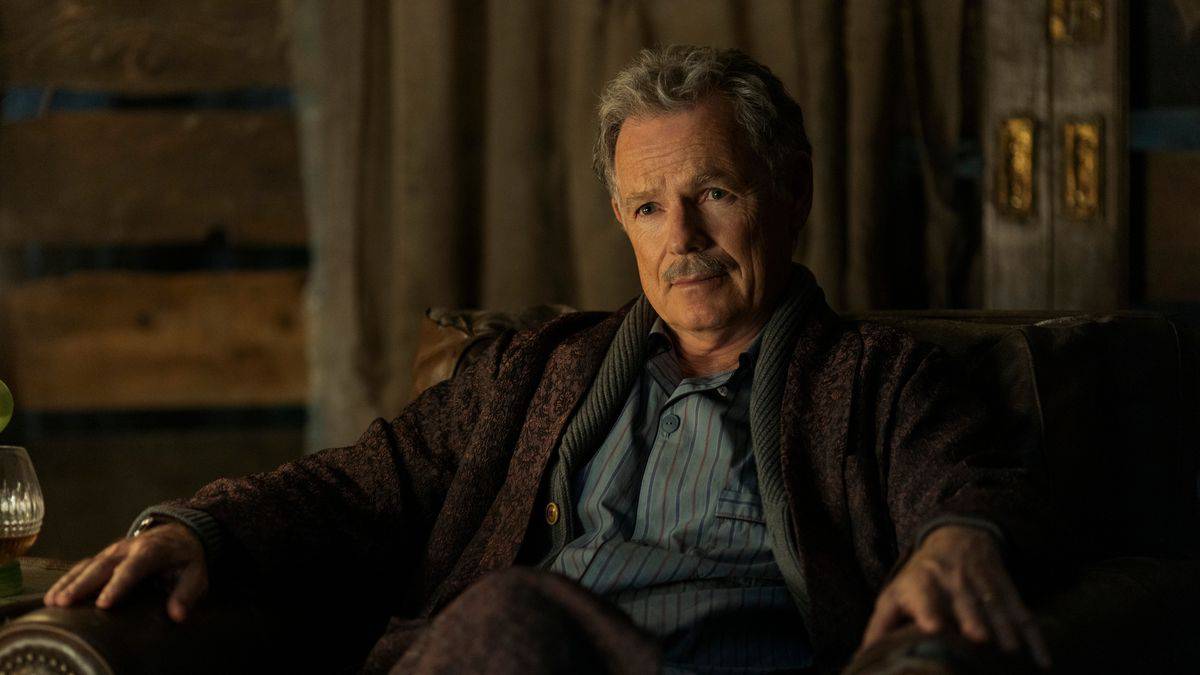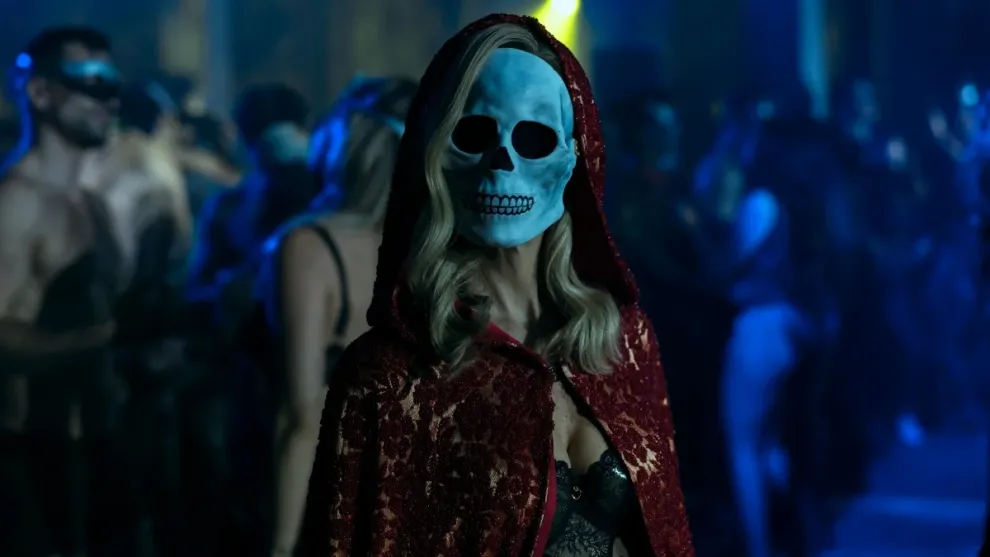The Fall of the House of Usher (2023) – Review and Summary
Mike Flanagan’s “The Fall of the House of Usher” is an entertaining and ghoulish time, but fans of Edgar Allan Poe’s classics may roll their eyes.

Spoiler Alert: This summary and review contains spoilers.
Additionally, some images and text may include affiliate links, meaning we may earn a commission or receive products if you make a purchase.
“The Fall of the House of Usher” General Information
| Created By | Mike Flanagan |
| Release Date (Netflix) | October 12, 2023 |
| Genre(s) | Horror |
| Noted Characters | |
| Bruce Greenwood (current)/ Zach Gilford (flashbacks) | Roderick Usher |
| Mary McDonnell (current)/
Willa Fitzgerald (flashbacks) |
Madeline Usher |
| Henry Thomas | Frederick Usher |
| Kate Siegel | Camille L’Espanaye |
| Rahul Kohli | Leo Usher |
| Samantha Sloyan | Tamerlane Usher |
| T’Nia Miller | Victorine LaFourcade |
| Carl Lumbly (current)/
Malcolm Goodwin (flashbacks) |
Detective Dupin |
| Mark Hamill | Arthur Pym |
| Carla Gugino | Verna |
Plot Summary
This content contains pertinent spoilers. Also, images and text in this post may contain affiliate links. If a purchase is made from those sites, we may earn money or products from the company.

“The Fall of the House of Usher” is an entertaining mishmash of Edgar Allan Poe stories tossed into a modern narrative that includes plenty of sex, drugs, and monkey mayhem. Creator Mike Flanagan has fun turning the goriest moments in Poe’s horror stories into schadenfreude for billionaires. The horror miniseries is equal parts gothic and soap opera, but the intrigue in each tone will vary depending on the viewer.
The horror and mystery tale is primarily told by Roderick Usher (Bruce Greenwood), the billionaire CEO of a corrupt pharmaceutical company, haunted by his grim and gory past. Mr. Usher reveals his sins and terrors to an attorney who seeks to prosecute him. The scenes unravel like two men sharing ghost stories with one another in the dead of night. The exchanges between Detective Dupin (Carl Lumbly) and Roderick Usher provide a ghoulish atmosphere that lures the viewer closer to the screen. As Roderick Usher continues to talk, we learn how each of his six children met their mysterious and brutal death.
Yet there’s another element to Flangan’s adaptation of Poe’s work that may be exciting to some viewers and nauseating to others. “The Fall of the House of Usher” has flashbacks to Roderick and his sister Madeline’s (Mary McDonnell/Willa Fitzgerald) past, but also takes place in 2023. Roderick has six children, all varying in age from early 20s to late forties that include subplots filled with marital woes, business scandals, and orgies. So the story becomes “Succession” meets “Euphoria” meets Edgar Allan Poe. If that sounds appealing to you, you may just love “The Fall of the House of Usher”…or… it can make you want to suffer a fate as worse as any of the Ushers.
Review
Our Rating: Mixed (Stick Around)
Who Is This For?
Fans of Edgar Allen Poe’s works or scandalous stories about the rich might enjoy “The Fall of the House of Usher.”
Notable Performances, Moments, or Episodes
Bruce Greenwood, Mark Hamill, and Carla Gugino Capture Poe’s Spirit

As Greenwood narrates the dark night of his soul, each croak and whisper in his voice captures the best of Poe’s narrators. Hamill’s ghoulish grimace is a character straight out of any gothic horror tale, as his very presence adds menace to any scene. Gugino’s ability to adapt to multiple ghosts with feigned innocence, sweetness, and plenty of lethal monologues turns each horrific moment into a malicious joy.
Highlights
The Storytelling Framing and Exchanges Between Dupin and Roderick Usher
Watching “The Fall of the House of Usher” is like cozying up with a book in its best moments. The scenes between Greenwood’s Usher and Lumbly’s Dupin especially send a shiver down your spine. Their connection is gothic, alluring, and poetic. The dialogue between them demonstrates, like Poe’s work, that some of the most chilling horror isn’t shown, but what can be seen through simple words.
On The Fence
The Constant Monologuing
Each character gets a chance to explain what’s wrong with the world today. While there’s a good line within each speech, the monologues become predictable, and their impact wanes as their repetition takes away their passion. Worse yet, the monologues can feel like the screenwriter patting themselves on the back. They quickly turn from clever to exhausting.
The Tonal Clashes

Sometimes, “The Fall of the House of Usher” feels like it’s pandering to pop culture trends seen in popular shows like Succession or Euphoria. Rich kids fighting over their father’s empire, doing drugs, having affairs, and throwing orgies doesn’t feel fresh or scandalous anymore, but more like an obligatory scene to get viewers. While these elements of the miniseries are sure to attract viewers and introduce some to Poe’s work, having a character quote “W.A.P.” in an Edgar Allen Poe adaptation is equally clever and embarrassing.
Vera is Mystifying in Frustrating Ways
Carla Gugino performs the hell out of Vera, the elusive yet haunting presence that makes her way through every Usher’s life. But what does she represent? Death? Sorcery? Fate? Her omniscient powers remain unclear, as she claims some things are out of her control yet maneuvers the death of each Usher child. Her presence is fun, but it also feels like convenient writing as she magically pops up to move any subplot forward.
What I Hope To See
“The Fall of the House of Usher” ends in a deserving tragedy. But if more Poe adaptations or another horror author is granted a miniseries, there’s no need for the amount of flashbacks and monologues to pad the story. Episodes can easily be 40–45 minutes vs. the hour-long episodes we receive. Editing is your friend.
Recommendations
If you like this show, we recommend:
Check out our TV-Series page for our latest recaps and reviews, as well as recommendations.


